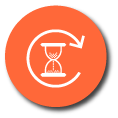Health Insurance
Health insurance, or more commonly called Mediclaim, is a very important insurance scheme, as hospital admission costs are rising. The health insurance policy usually compensates individuals for a base level of 24 hours of hospital stay. The costs to be taken into consideration involve remedy, surgery, sedation, implants, diagnosis, medications, hospital accommodation, pre & post hospitalization, and so on. That being said, a minimum of 24 hours of hospital stay is not needed in the listed Day Care surgery. People should act responsibly in buying health insurance policies on the grounds of the waiting period for stated chronic diseases, pre-existing diseases, maternal benefits, etc.
The choice of an appropriate insured amount is also very important since many health insurance policies compensate for room charges connected to the insured sum, such as up to 1% of the insured amount per day for Standard Room & up to 2% of the insured amount per day for admission to the Intensive care unit. Not only that, but other medical expenditures such as doctor's visitation fees, operating theatre charges, operating fees, general anaesthesia fees, etc. will also be proportionately affected if room charges surpass predefined constraints. It is therefore prudent to purchase a health insurance policy without such a limit on room charges, surgical treatments and a proportionate decrease in the amount of the claims.
In addition to regular health insurance policies, the following additions to coverage or policies are also present:


Critical Illness Benefit Policy
It is a policy on non-indemnity insurance that protects the insured by providing a lump sum not exceeding the amount insured to aid him/her in sustaining his/her lifestyle in the event of any of the vital illnesses mentioned, such as 1st heart attack, cancer, etc., is detected. This sum is given only if the insured stays alive for the predetermined surplus days, say 7/30/60/90 days after the detection of serious illness. In essence, this sort of policy is offered as a different policy. Besides that, a few health insurance policies offer the advantage of Double Sum Insured in the event of a diagnosis of any of the identified serious diseases.

Hospital Cash Benefit Policy
It is always a bonus scheme that allows the policyholder to pay the lump sum value as per the policy for the length of time of hospitalization in surplus of the predetermined number of days, say 3 days. This scheme aims to enable the policyholder to cover unforeseen costs imposed during hospitalization, such as fruits, transportation, companion costs, etc., which are not covered in a standard health insurance policy.

Top-up/Super Top-up/Deductible Policy
This is a very common supplemental health insurance scheme that can be bought as a "Spare Wheel." It is usually deemed expensive to seek a higher insured amount and, at the same time, no one can foresee medical expenditures. Often such unscheduled extra costs lead individuals to become debt-ridden by borrowing at a very high-interest rate owing to a life-threatening circumstance. A carefully crafted health insurance program has a characteristic called Threshold Limitation or Deductible. Any number of claims where the threshold limit has been exceeded and is admissible according to the subscription guideline shall be paid. The threshold limit for a policy like this can now be increased in either one claim or utilizing total claims in a policy period. A policy that recognizes only the sum of a single claim surpassing the Threshold limit is referred to as the Top Up policy. The likelihood of benefiting from the Top Up policy is relatively less, therefore it is not advisable. The other form of policy that is termed the Super Top Up policy, is worth purchasing because the likelihood of receiving its profit is fair. The total amount of all claims of the policyholder surpassing the Threshold Limit is hereby caused by the claim under that scheme. Super Top Up policy is a very budget efficient option for selecting high insured amounts. The following basic choices for the Super Top Policy are as follows:
Amount Insured – 3 lakhs to 8 lakhs for deductible 2 lakhs, 7 lakhs to 17 lakhs for deductible 3 lakhs, 5 lakhs to 20 lakhs for deductible 5 lakhs, and so on.
One must pick a deductible in proportion to one's main health insurance policy.
For Instance, If somebody has a family floater policy of three lakhs, then he and his household members can claim up to three lakhs in this central policy. Now, if that family intends to deduct 3 lakes and goes for Super Top Up policy with the amount insured 12 lakes then they are covered by insurance for 12 lakhs more at quite a decent cost. As a result, their overall health insurance would be 15 lakhs but at a very affordable rate in comparison to the option of 15 lakhs in their main scheme.
Considering the massive pocket pull increase in hospital admission expenditures, we suggest buying a main health insurance policy with a minimal covered amount of 5 lakhs & Super Top Up policy Amount insured of minimum 10 lakhs with reloading or recharge advantage and deductible or threshold 5 lakhs.
Personal Accident Insurance
Its abbreviation PA or IPA as individual PA is more famous in terms of terminology. It is a must to purchase policy for any person over 18 years of age as a mishap occurs inadvertently and in the case of an injury to a member of the family if it causes death or impairment, the sustainability of his or her family is left to its fate. PA policy premium is quite marginal, and it must be purchased in order to satisfy the family. PA policy offers benefits in the situation of Accidental Death, Permanent Total Disability–PTD, Permanent Partial Disability–PPD and Temporary Total Disability–TTD. Total Amount Insured obtainable under the PA policy is 100 to 120 times the monthly earnings of the policyholder while the TTD is usually 24 times the monthly earnings of the policyholder. Reliant individuals may also be covered by the same family if they do not usually earn 50 per cent of the amount insured for the partner and 25 per cent for the kid. A few Insurance Companies also provide add on covers such as medical expenses which include OPD, unexpected hospitalization expenditure, where a minimum of 24 hours of hospital stay is mandated, loan exemption, educational advantages for maximum two reliant kids, and transportation of corpses, funeral expenditures, ambulance fees, and so on.

